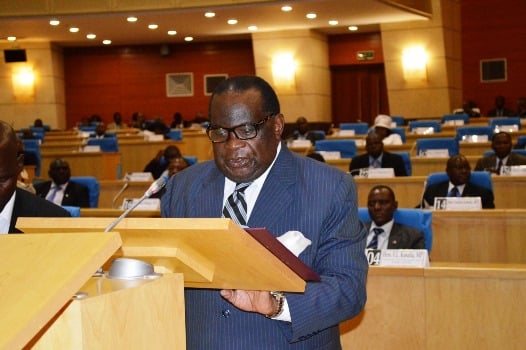![Charles Chitsamba, a teacher at Ngolowindo]()
When a team of UN agencies came together to support the improvement of girls education through a joint programme, little did they expect that such an intervention would just in a year start to bear fruits in both enhancing access to and ensuring delivery of quality education.
[caption id="attachment_103562" align="alignright" width="600"]
![Charles Chitsamba, a teacher at Ngolowindo]()
Charles Chitsamba, a teacher at Ngolowindo[/caption]
It is not surprising, therefore, that just one year down the line as observed during a recent review meeting held at Machinga Teachers Training College (TTC) that each one of the stakeholders spoke highly of the impact the initiative has registered in only a year of its implementation.
The United Nations Joint Programme on Girl Child Education (JPGE) receives financial support from the United Nations Children Fund, the United Nations Development Programme, the United Nations Population Fund and the World Food Programme. The Norwegian Government also contributes resources to the initiative.
The three year programme being spearheaded by the Machinga TTC in three districts of Dedza, Mangochi and Salima, targeting a total of 81 schools with a minimum of 14 institutions in each cluster of the two selected primary education zones of a particular district, aims at improving access to and ensuring quality delivery of education for girls in Malawi.
The genesis of the concept is premised on the fact that girls in Malawi have been and continue to face a number of interrelated challenges in attaining quality education ranging from social, economic to protective and health.
A thorough analysis established that contextual factors such as cultural practices and gender inequalities, attitudes and behaviours of people in the community in general contribute to low achievement levels among girls in the country.
Yet it has always been argued that when you educate a boy child you have educated an individual while when you educate a girl child you have educated the whole nation.
In this respect, cluster leader for Ngolowindo Model primary school in Salima, Charles Chitsamba said the JPGE has been a stepping stone in improving education standards not only in the cluster but even in other neighbouring schools which are indirectly benefitting from the interventions through continued professional development (CPD) interactions.
“Through the teacher resource centres, learners can respond to questions because the objects are explaining abstract concepts in a manner that is easy to comprehend,” Chitsamba told Malawi News Agency (Mana) on the sidelines of the review meeting.
Chitsamba who is also Ngolowindo Primary School head teacher said there have been some developments which were not there before the introduction of TRCs, admitting that teachers have now acquired skills in mobilizing communities to come up with resources for teaching.
“Previously, the community thought that the work of ensuring access and quality of education was for teachers alone–but that perception has changed, they can now bring forth teaching and learning resources to the school,” Chitsamba added.
Chitsamba disclosed that within the elements of TRC, there is also an aspect of child protection whereby participating schools have established child protection committees comprising learners, community members and teachers alike.
He said benefits of TRC include high and sustained enrolment and that the creation of a child friendly school in the cluster has seen three girls who dropped out of school being readmitted.
Concurring with Chitsamba, Machinga Teachers Training College JPGE Coordinator, Holmes Chirwa said the initiative’s goal is to improve access and quality of education in Malawi particularly in the three districts of Dedza, Mangochi and Salima.
He said Machinga TTC in liaison with Voluntary Services Organisation strives at contributing to the programme’s outcome of improving attitudes and skills of teachers towards girls to effectively deliver life skills and gender related methodologies.
“Over and above, we are also trying to create what we call friendly schools environment to enhance the making and utilization of teacher resource centres.
“In the first year, the programme has trained teacher instructors, teachers in college and also trained in-service primary school teachers,” he said.
He said community groups such as school management committees, mother support groups and parent and teacher associations as well as the community at large have been engaged to solicit their support towards TRC but also child friendly schools.
In this regard, Chirwa hailed the initiative for registering remarkable achievements, indicating that out of the 40 schools in the initial year 34 have had TRCs constructed where teachers, learners and community members mobilize resources to promote the teaching and learning exercise.
“In addition, the communities and teachers are able to create child friendly schools on their own by providing sanitary facilities and other things.
“Another success is that teachers are able to integrate responsive methodologies which are an important approach because they make learners participate actively in class,” he pointed out.
To this effect, Chirwa said Machinga TTC is heavily indebted to government and the development partners such as UNICEF, UNDP, WFP and UNFPA without whose support and efforts girls could not be readmitted into school.
He said girls were also being given leadership positions which gives them confidence and in the process helps them stay positive and focused until they complete the primary school cycle.
Correspondingly, acting director for the department of teacher education, Mary Chirwa indicated that the concept of child friendly schools whereby teachers including the community are encouraged to provide an amiable learning environment particularly for the girl child was a catalyst to achieving quality education if it were implemented to the fullest.
“As you may be aware, the education sector has numerous challenges and with the resources provided by donor agencies the districts have managed to come up with TRCs where teaching and learning materials are produced to assist in the teaching and learning process,”
“The materials are produced by both teachers and learners in some cases, communities are also involved,” she said.
The acting director further said to consolidate the gains in child friendly efforts, life skills was also promoted for sustainable development as a means to ensuring that learners are able to fend for themselves, citing an example of Machinga TTC rearing chickens as an income generating activity to aid it in raising funds to pay fees for needy teacher trainees.
“The same is encouraged that schools should be innovative enough to come up with some initiative to generate financial resources for the day to day operations of their school,” she emphasised.
For example, several policy documents including the 2011 education management information system (EMIS) indicates that 53 percent of boys completed full cycle of primary education while girls had 47 percent. Therefore, putting emphasis on girl child education does not completely mean leaving out boys, according to the EMIS.
In this connection, Chirwa said the education sector was putting much emphasis on championing inclusive education in light of the fact that some classrooms may have children with disabilities while others may be coming from poor families, thereby making it difficult for such learners especially girls to learn effectively.
“At present we are training teachers to make sure they have the approach or methodology that would help them handle children with different needs to attain quality education, necessary skills and knowledge when coming out of college,” she noted.
Chirwa, however, observed that while attention was being shifted from Millennium Development Goals (MDGS) to Sustainable Development Goals (SDGs), the sector’s role would be to champion inclusive quality education for sustainable development.
On a larger scale, the programme has seven primary outcomes which include, but not limited to, ensuring girls and boys in targeted schools are well nourished and remain in school, increase access to second chance education for both in and out of school girls and quality integrated youth friendly services, among others.
Machinga TTC is contributing to outcome 5 of the programme which attempts to enhance teacher attitudes and skills to effectively deliver life skills based and gender responsive methodologies.
Speaking in an interview with Mana, Machinga TTC Principal, Macauden Msakatiza said the programme has registered a number of successes in the first year, citing training of teachers in participating clusters to mobilize and manage teaching resources in the established TRCs.
“The monitoring exercise that was conducted revealed that there is a shift in the way things are being done in the participating schools of the three districts,” Msakatiza said, admitting that challenges were inevitable in the course of programme implementation.
“One of the major problems we encountered in the first year was during the establishment of TRCs. Most schools did not have adequate space for TRCs which require a special room for keeping teaching and learning materials where both teachers and learners can appreciate whatever is going on in the resource centre,” he said.
Msakatiza, therefore, disclosed that the project would in the second year of implementation construct 35 TRCs in the three beneficiary districts which would act as models for other schools within the cluster to draw inspiration from.
It is quite obvious, therefore, that child friendly schools cannot be discussed in isolation of vibrant school – community linkages coupled with excellent TRCs which are readily available for teachers to use as Chitsamba summed it up during the review meeting.
Chitsamba concluded: “With TRC we are able to keep resources for the next lessons because previously such resources could not be traced after use.”
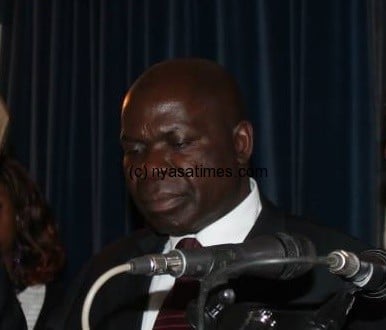
 Minister of Education, Emmanuel Fabiano: JCE not vital now[/caption]
Minister of Education Emmanuel Fabiano said in Parliament when he was making a ministerial statement to explain to opposition parliamentarians the government decision to hike secondary school fees and abolish JC exams.
Fabiano said the JC exam as useless and a just a drain in government coffers as most if not all employers, including the government no longer recognises the certificate as minimum academic qualification for employment.
"In both eastern and southern Africa, it is only Malawi and Zambia that continues to administer the examination. The rest of the countries require national examinations at the end of the cycle of secondary school education," he said.
He therefore said the K2 billion that the government used to spend in administering the examination will help improve learning and teaching process in secondary school.
Fabiano said the JC examination was also set at the time when form three and form four places were limited so it as used as way of getting brighter students to form three.
He said things have now changed as all secondary schools, including day and community secondary schools have places up to form four so it makes no sense to deny somebody a place.
After all, the minister said, the government wants Malawians to have complete secondary school education.
Fabiano also warned head teachers against sending back home students who fail to pay school fees within two weeks and replace their places during second selection, saying this system was discontinued.
He said students who pay 50 per cent of the fees can remain in school and if the student fails to pay school fees, the student can apply to have a place in the next academic season, saying access to education should not just be for the rich only.
Fabiano said this is why the government has increased bursary money from K430 million to K480 million a year to allow the poor access education.
The minister said the new bursary rules now allow traditional leaders and councillors to sit in council meetings to identify the needy for the bursary.
In addition to government, he said, Unicef and other organisations have their own bursary programmes with own criteria.
Minister of Education, Emmanuel Fabiano: JCE not vital now[/caption]
Minister of Education Emmanuel Fabiano said in Parliament when he was making a ministerial statement to explain to opposition parliamentarians the government decision to hike secondary school fees and abolish JC exams.
Fabiano said the JC exam as useless and a just a drain in government coffers as most if not all employers, including the government no longer recognises the certificate as minimum academic qualification for employment.
"In both eastern and southern Africa, it is only Malawi and Zambia that continues to administer the examination. The rest of the countries require national examinations at the end of the cycle of secondary school education," he said.
He therefore said the K2 billion that the government used to spend in administering the examination will help improve learning and teaching process in secondary school.
Fabiano said the JC examination was also set at the time when form three and form four places were limited so it as used as way of getting brighter students to form three.
He said things have now changed as all secondary schools, including day and community secondary schools have places up to form four so it makes no sense to deny somebody a place.
After all, the minister said, the government wants Malawians to have complete secondary school education.
Fabiano also warned head teachers against sending back home students who fail to pay school fees within two weeks and replace their places during second selection, saying this system was discontinued.
He said students who pay 50 per cent of the fees can remain in school and if the student fails to pay school fees, the student can apply to have a place in the next academic season, saying access to education should not just be for the rich only.
Fabiano said this is why the government has increased bursary money from K430 million to K480 million a year to allow the poor access education.
The minister said the new bursary rules now allow traditional leaders and councillors to sit in council meetings to identify the needy for the bursary.
In addition to government, he said, Unicef and other organisations have their own bursary programmes with own criteria.

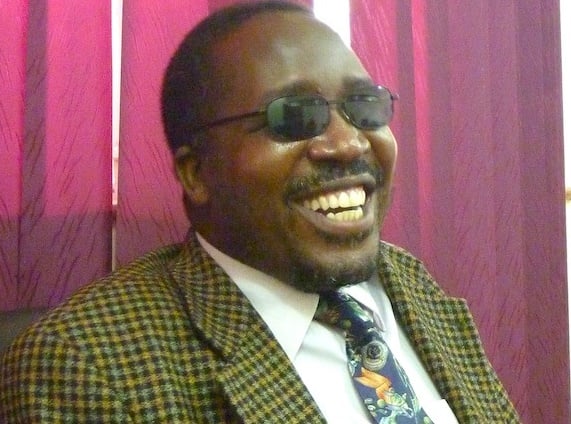

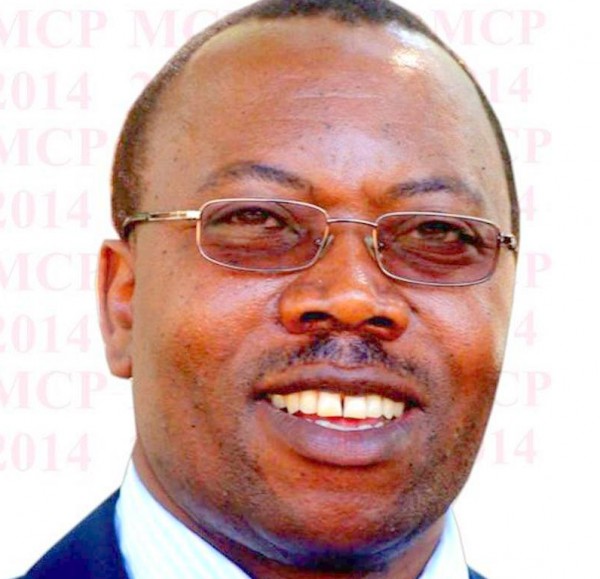 Jumbe: Moved a motion against school fees hike[/caption]
Schools have opened for Second term of 2015- 2016 Academic calendar on Monday January 4 2016, a date that the new fees was earmarked for implementation.
Those Nyasa Times have spoken to say that they are working within their mandate as they are using the memorandum that they received from the government, saying there is no other memorandum suggesting otherwise.
But we can also report that after Member of Parliament for Salima Central Felix Jumbe moved a motion stopping government from implementing the hiked fees in public Secondary Schools and Tertiary Institutions the matter was well supported and it was sustained.
Jumbe observed that the government can hold until the economic situation improves.
But during the debate in Parliament Minister of Justice and Constitutional Affairs Samuel Tembenu said parliamentarians went beyond their mandate in passing the motion and it is not known whether the stand by the schools bend on that statement.
Students who communicated to this publication said that they have been told that there is no change as there is no letter from the Ministry.
"We are told that just last week the Minister of Education, Science and Technology Dr Emmanuel Fabiano told a daily publication that Ministry officials were on holiday and a statement on the issue would be released after the holiday as such no person can revert what was communicated to the schools officially," said a student in Nkhotakota.
Jumbe has said that it would be unrealistic for the government to demand more from the citizenry that is equally struggling economically.
He said: “If you ask the government to fund a certain project today, they will tell you that they have no money. So, it is the same thing with people. I don’t think it is fair to excessively demand from people what they cannot afford. The people of Malawi are getting impoverished at a very high rate and raising school fees in the current situation cannot be justified,” Jumbe said.
“Of course there are some people who do not accept reality. But the reality is, even if they raise the fees, some people will not be able to report for their studies. Maybe, it will be easy for the sons and daughters of ‘cashgaters’. But original Malawians, who work and get money out of integrity, will be unable to raise money for the hiked fees,” he said.
But Civil Society Education Coalition Executive Director Benedicto Kondowe was quoted saying that the government was justified to raise the fees given the current economic status, but needed to be careful on the magnitude of the increase.
The Ministry justified the hike saying it was aimed at improving the provision of various resources and services needed in the schools (improving the quality of education and service delivery).
In the statement the Ministry observed that the new fees will greatly assist schools to improve standards by providing adequate teaching and Learning materials to achieve the recommended pupil to textbook ratio of 1:1.
Here is the list of school fees:
Secondary Schools;
Nation: K85000
District: K35000
CDSS:K11000
TTC:K35000
Domasi: K220000
UNIMA: K270000
MZUNI: K275000
LUANAR: K280000
There is no statement yet from the government but people have warned that should the government remain quiet the whole week, schools will be abandoned and the country would come to a stand still.
Jumbe: Moved a motion against school fees hike[/caption]
Schools have opened for Second term of 2015- 2016 Academic calendar on Monday January 4 2016, a date that the new fees was earmarked for implementation.
Those Nyasa Times have spoken to say that they are working within their mandate as they are using the memorandum that they received from the government, saying there is no other memorandum suggesting otherwise.
But we can also report that after Member of Parliament for Salima Central Felix Jumbe moved a motion stopping government from implementing the hiked fees in public Secondary Schools and Tertiary Institutions the matter was well supported and it was sustained.
Jumbe observed that the government can hold until the economic situation improves.
But during the debate in Parliament Minister of Justice and Constitutional Affairs Samuel Tembenu said parliamentarians went beyond their mandate in passing the motion and it is not known whether the stand by the schools bend on that statement.
Students who communicated to this publication said that they have been told that there is no change as there is no letter from the Ministry.
"We are told that just last week the Minister of Education, Science and Technology Dr Emmanuel Fabiano told a daily publication that Ministry officials were on holiday and a statement on the issue would be released after the holiday as such no person can revert what was communicated to the schools officially," said a student in Nkhotakota.
Jumbe has said that it would be unrealistic for the government to demand more from the citizenry that is equally struggling economically.
He said: “If you ask the government to fund a certain project today, they will tell you that they have no money. So, it is the same thing with people. I don’t think it is fair to excessively demand from people what they cannot afford. The people of Malawi are getting impoverished at a very high rate and raising school fees in the current situation cannot be justified,” Jumbe said.
“Of course there are some people who do not accept reality. But the reality is, even if they raise the fees, some people will not be able to report for their studies. Maybe, it will be easy for the sons and daughters of ‘cashgaters’. But original Malawians, who work and get money out of integrity, will be unable to raise money for the hiked fees,” he said.
But Civil Society Education Coalition Executive Director Benedicto Kondowe was quoted saying that the government was justified to raise the fees given the current economic status, but needed to be careful on the magnitude of the increase.
The Ministry justified the hike saying it was aimed at improving the provision of various resources and services needed in the schools (improving the quality of education and service delivery).
In the statement the Ministry observed that the new fees will greatly assist schools to improve standards by providing adequate teaching and Learning materials to achieve the recommended pupil to textbook ratio of 1:1.
Here is the list of school fees:
Secondary Schools;
Nation: K85000
District: K35000
CDSS:K11000
TTC:K35000
Domasi: K220000
UNIMA: K270000
MZUNI: K275000
LUANAR: K280000
There is no statement yet from the government but people have warned that should the government remain quiet the whole week, schools will be abandoned and the country would come to a stand still.


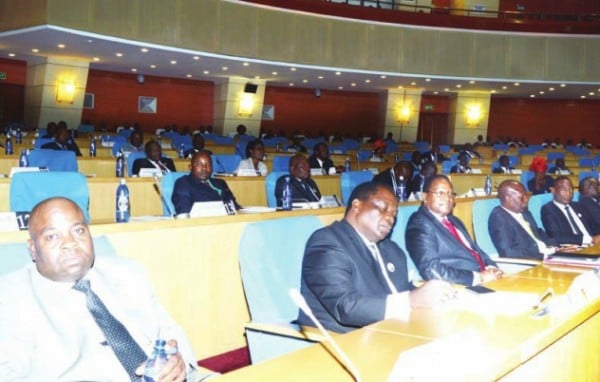 Members of parliament[/caption]
At household level, I believe that every person is an economist because each one of makes choices among many options to get the best rewarding outcomes and experiences. Our economic decisions are influenced mainly by our needs.
And since our needs are too many and endless and our incomes and resources are very limited, we choose which needs to satisfy first and which ones to forgo, depending on the bearability of the consequences triggered by the forgone need or option.
At government level unfortunately, government’s economic policies and decisions are very much influenced by politics. In government, politicians do not choose options and policies that have the best economic rewards to the public. Instead, they opt for choices and policies that maximise their political advantage.
Politicians are interested in votes, and keeping themselves and their Parties in power forever. Both, the ruling Party, and the Opposition have the same goals which puts public economic benefits second, and their political ambitions first.
Looking at the recent suspension of the school fees hike, at a time when government is extremely broke, that it cannot afford to finance any of the public goods, one can easily notice the influence of politics in economic policies and decisions of government or the ‘politics of economics.’
Education in public institutions, from primary schools, secondary schools to colleges and universities, is a public good. This means that government subsidies this education with billions of Kwachas.
Therefore, when government is broke as it is now, subsidies become a burden and a major threat to economic recovery. The ideal policy under such a circumstance is to cut on subsidies so government can save the billions to efficiently support its recurrent expenditures or budget.
In fact, it does not make any economic sense, to force government to continue paying subsidies for everything, when it is broke, because the questions is, “where do you think the government will get the money to subsidize the public goods when it is broke?.”
Here is the politics by both, the ruling party and the opposition: When government resolved to hike the fees, which was an act of rare boldness, they knew that it was the best economically rewarding policy under the circumstances, but they have rescinded the decision because of the political pressure from the Opposition. But the Opposition too, know very well that the hiking of fees is a sound fiscal policy at the moment, because government must cut on costs.
But the opposition knows that Malawians don’t want to pay higher schools fees. They know Malawians are complaining. So they want to take advantage of the situation, to pretend to care for the welfare of Malawians, and present themselves as sympathisers, when it true sense, they are only scoring a political point. On the hand, government is scared of allowing the opposition to score a cheap political point on this.
The truth is that the extra financial burden that Malawians would endure with the hike of school fees, is only the trade-off of the decision, to give government extra financial resources provide the same public goods we are desperate about, like medicine and food in hospitals, food in prisons, water, fuel for ambulances, and many more.
We cannot run away from that, because every economic decisions has trade-offs, even the decision not to hike.
Members of parliament[/caption]
At household level, I believe that every person is an economist because each one of makes choices among many options to get the best rewarding outcomes and experiences. Our economic decisions are influenced mainly by our needs.
And since our needs are too many and endless and our incomes and resources are very limited, we choose which needs to satisfy first and which ones to forgo, depending on the bearability of the consequences triggered by the forgone need or option.
At government level unfortunately, government’s economic policies and decisions are very much influenced by politics. In government, politicians do not choose options and policies that have the best economic rewards to the public. Instead, they opt for choices and policies that maximise their political advantage.
Politicians are interested in votes, and keeping themselves and their Parties in power forever. Both, the ruling Party, and the Opposition have the same goals which puts public economic benefits second, and their political ambitions first.
Looking at the recent suspension of the school fees hike, at a time when government is extremely broke, that it cannot afford to finance any of the public goods, one can easily notice the influence of politics in economic policies and decisions of government or the ‘politics of economics.’
Education in public institutions, from primary schools, secondary schools to colleges and universities, is a public good. This means that government subsidies this education with billions of Kwachas.
Therefore, when government is broke as it is now, subsidies become a burden and a major threat to economic recovery. The ideal policy under such a circumstance is to cut on subsidies so government can save the billions to efficiently support its recurrent expenditures or budget.
In fact, it does not make any economic sense, to force government to continue paying subsidies for everything, when it is broke, because the questions is, “where do you think the government will get the money to subsidize the public goods when it is broke?.”
Here is the politics by both, the ruling party and the opposition: When government resolved to hike the fees, which was an act of rare boldness, they knew that it was the best economically rewarding policy under the circumstances, but they have rescinded the decision because of the political pressure from the Opposition. But the Opposition too, know very well that the hiking of fees is a sound fiscal policy at the moment, because government must cut on costs.
But the opposition knows that Malawians don’t want to pay higher schools fees. They know Malawians are complaining. So they want to take advantage of the situation, to pretend to care for the welfare of Malawians, and present themselves as sympathisers, when it true sense, they are only scoring a political point. On the hand, government is scared of allowing the opposition to score a cheap political point on this.
The truth is that the extra financial burden that Malawians would endure with the hike of school fees, is only the trade-off of the decision, to give government extra financial resources provide the same public goods we are desperate about, like medicine and food in hospitals, food in prisons, water, fuel for ambulances, and many more.
We cannot run away from that, because every economic decisions has trade-offs, even the decision not to hike.

 Team Rise: UK young students raising money for Malawi under charity 'Wings of Hope'[/caption]
The five students are Saumiyaah Nimalakumaran, Shivvanthi Sugumar, Subikka Kumanan, Yesica Nithiyanantha and Bavankanth Chandrasekaren.
“ We are group of students (under 16), in the UK, named Team Rise. We are participating in a nationally recognized social enterprise charity programme designed for students endeavoring to improve the lives of children in Malawi and India, by fundraising to provide them with the free education they rightly deserve,” the students told Nyasa Times.
The charity for which they are fundraising is called 'Wings of Hope' and is registered in the UK.
“All of the money we are raising will go directly to schools in the targeted countries.
“We wanted to fundraise for Malawi because we believe that every child deserves an education - regardless of their demographics. It is a key social and cultural right and plays a significant role in reducing poverty and child labour, as well as promoting democracy.”
“As Nelson Mandela himself stated, 'Education is the most powerful weapon which you can use to change the world' and we too want to make a difference by fundraising for underprivileged children's education in Malawi and India. There are around 1.3 million orphans in Malawi and we want to help them out of poverty and give them a chance to rise, by aiding their education.
“In order to do so we decided to fund raise for the charity Wings of Hope, which supports the Jacaranda Primary and Secondary school in Malawi. Every penny we raise goes directly to this school to provide the orphans there with a completely free education.
“The five of us have been carrying out various activities to raise funds for the education of Malawian children and your support would mean a lot to us. Papers have already agreed to advertise us globally, and news regarding our team and our fundraising will be shown very soon.”
Team Rise: UK young students raising money for Malawi under charity 'Wings of Hope'[/caption]
The five students are Saumiyaah Nimalakumaran, Shivvanthi Sugumar, Subikka Kumanan, Yesica Nithiyanantha and Bavankanth Chandrasekaren.
“ We are group of students (under 16), in the UK, named Team Rise. We are participating in a nationally recognized social enterprise charity programme designed for students endeavoring to improve the lives of children in Malawi and India, by fundraising to provide them with the free education they rightly deserve,” the students told Nyasa Times.
The charity for which they are fundraising is called 'Wings of Hope' and is registered in the UK.
“All of the money we are raising will go directly to schools in the targeted countries.
“We wanted to fundraise for Malawi because we believe that every child deserves an education - regardless of their demographics. It is a key social and cultural right and plays a significant role in reducing poverty and child labour, as well as promoting democracy.”
“As Nelson Mandela himself stated, 'Education is the most powerful weapon which you can use to change the world' and we too want to make a difference by fundraising for underprivileged children's education in Malawi and India. There are around 1.3 million orphans in Malawi and we want to help them out of poverty and give them a chance to rise, by aiding their education.
“In order to do so we decided to fund raise for the charity Wings of Hope, which supports the Jacaranda Primary and Secondary school in Malawi. Every penny we raise goes directly to this school to provide the orphans there with a completely free education.
“The five of us have been carrying out various activities to raise funds for the education of Malawian children and your support would mean a lot to us. Papers have already agreed to advertise us globally, and news regarding our team and our fundraising will be shown very soon.”
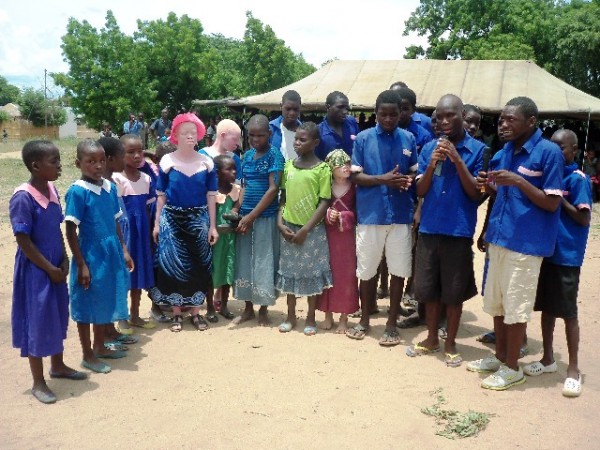 In their song, pupils from Makande asked for a fast renovation of the resource centre_ Pic by Lapken Kapoto[/caption]
[caption id="attachment_101947" align="alignright" width="600"]
In their song, pupils from Makande asked for a fast renovation of the resource centre_ Pic by Lapken Kapoto[/caption]
[caption id="attachment_101947" align="alignright" width="600"]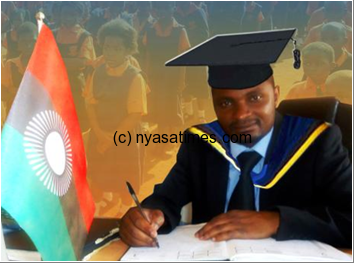

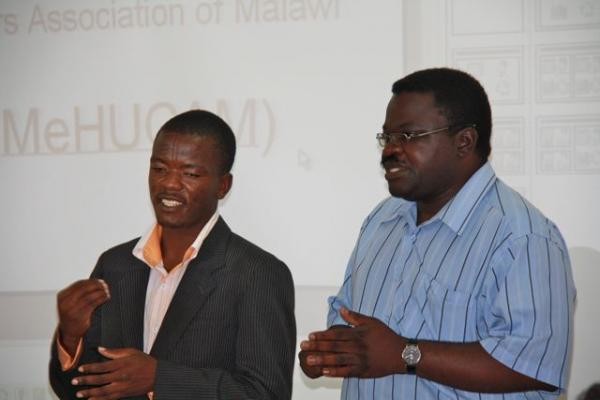 Action Amos (R): Inclusive education[/caption]
To this effect ministry of education officials associations representing people with disabilities meet recently at Liwonde in Machinga to discuss a National Inclusive Education Strategy draft which presented by consultants.
Deputy Director of Special needs education in the Ministry of Education David Njaidi said the ministry is committed to address and respond to the needs of groups of children that are currently being excluded by the current system.
Malawi Growth Development Strategy, National Education Strategic Plan and United Nations Convention on the Rights of Children are some of the instruments that are currently guiding the ministry to respond to the needs of the marginalized and excluded children.
He therefore commended UNICEF for funding the process of the National Inclusive Education Strategy which he said will shape the future of education in the country.
In line with Education For All goals, the new National Inclusive Education Strategy will ensure quality, equity and equality in the education system which will in turn address poor attendance, performance and participation among learners and education stakeholders, according to Njaidi.
“The spirit of inclusion in our education system is there, what is needed is coordination,” Njaidi noted saying the soon to be launched strategy will intensify the already existing spirit.
Fedoma, Malawi Against people with Physical disability, Malawi Council for the Handicapped, Sight Savers, Association of People with Albinism, Save The Children, Montfort College attended the stakeholders consultative workshop at Liwonde.
The National Inclusive Education Strategy will address educational needs among street children, excluded children, children with disabilities, vulnerable girls, children from child headed households, according to FEDOMA Executive Director Action Amos.
He however noted that the current education system excludes and marginalizes children with disability as most schools in the country lacks special needs teachers and proper learning and teaching materials ideal for learners with disability.
Amos expressed hope that the Liwonde meeting will approach the current system which he noted has gaps in addressing needs of excluded and marginalized learners.--Mana
Action Amos (R): Inclusive education[/caption]
To this effect ministry of education officials associations representing people with disabilities meet recently at Liwonde in Machinga to discuss a National Inclusive Education Strategy draft which presented by consultants.
Deputy Director of Special needs education in the Ministry of Education David Njaidi said the ministry is committed to address and respond to the needs of groups of children that are currently being excluded by the current system.
Malawi Growth Development Strategy, National Education Strategic Plan and United Nations Convention on the Rights of Children are some of the instruments that are currently guiding the ministry to respond to the needs of the marginalized and excluded children.
He therefore commended UNICEF for funding the process of the National Inclusive Education Strategy which he said will shape the future of education in the country.
In line with Education For All goals, the new National Inclusive Education Strategy will ensure quality, equity and equality in the education system which will in turn address poor attendance, performance and participation among learners and education stakeholders, according to Njaidi.
“The spirit of inclusion in our education system is there, what is needed is coordination,” Njaidi noted saying the soon to be launched strategy will intensify the already existing spirit.
Fedoma, Malawi Against people with Physical disability, Malawi Council for the Handicapped, Sight Savers, Association of People with Albinism, Save The Children, Montfort College attended the stakeholders consultative workshop at Liwonde.
The National Inclusive Education Strategy will address educational needs among street children, excluded children, children with disabilities, vulnerable girls, children from child headed households, according to FEDOMA Executive Director Action Amos.
He however noted that the current education system excludes and marginalizes children with disability as most schools in the country lacks special needs teachers and proper learning and teaching materials ideal for learners with disability.
Amos expressed hope that the Liwonde meeting will approach the current system which he noted has gaps in addressing needs of excluded and marginalized learners.--Mana

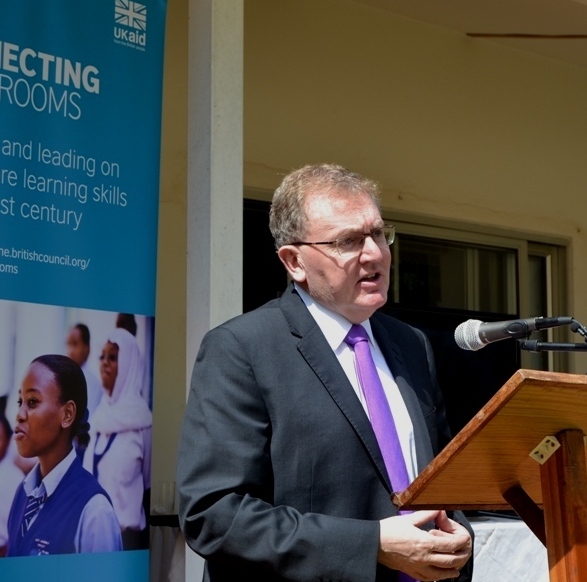 David Mundell-Secretary of State for Scotland, gives his remarks at the launch of the Connecting Classrooms Programme in LL.-(c) Abel Ikiloni, Mana[/caption]
[caption id="attachment_103704" align="alignright" width="600"]
David Mundell-Secretary of State for Scotland, gives his remarks at the launch of the Connecting Classrooms Programme in LL.-(c) Abel Ikiloni, Mana[/caption]
[caption id="attachment_103704" align="alignright" width="600"]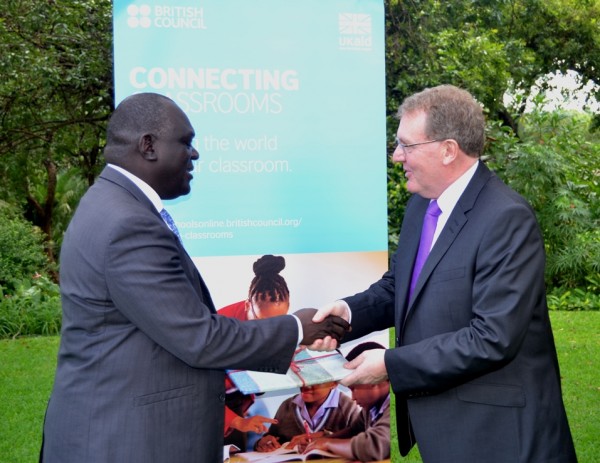 Deputy Minister of Education Science and Technology, Vincent Ghambi receives a gift from UK Minister and Secretary of State for Scotland, David Mundell-(c) Abel Ikiloni, Mana[/caption]
Ghambi made the sentiment on Wednesday in Lilongwe at the launch of the third phase of connecting classrooms which will run from 2015-2018.
He said the launch of this phase of Connecting Classrooms coincides with the introduction of the new curriculum in secondary schools this school year
“I welcome the British Council’s decision to focus the next three years of the Connecting Classrooms programme on working with secondary school sector. I believe it will make a valuable contribution to two priority policy goals of improving quality and equity in the secondary schooling and improving management of secondary schools,” said Ghambi.
He added: “Connecting Classrooms will support teachers to introduce young people to new ways of working, new ways of thinking, and new ways of living in a global world. It does this by providing opportunities for education professionals and policy makers to contribute to education discourse in national, regional and global forums, supporting system development and through the provision of continuous professional development opportunities for teachers and school leaders.”
The minister further added that the launch of Connecting Classrooms in partnership with the UK will support the programme’s intention of developing the core skills of our young people in Malawi by enabling them to engage critically with the world around them and to get the best from their education for the long term mutual benefit of Malawi and the UK.
In his remarks, Secretary of State for Scotland, David Mundell, said the new phase of Connecting Classrooms is designed to help young people develop the knowledge, skills and values to live and work in a globalised economy and make a positive contribution locally and globally.
He said the programme, running from 2015-2018 will build capacity of 45,000 teachers and 12,000 school leaders’ worldwide, support them integrate a range of core skills into the curriculum with an estimation of over 5 million people benefiting from classrooms around the world.
“British Council, through its programme in Malawi aims to create ‘ a basis of friendly knowledge and understanding’ of the UK by making a major contribution to the people and the institutions with who we work, creating opportunities, building connections and engaging trust,” he said.
Mundell also said the Malawi connecting Classrooms has to-date reached over 320,000 learners in primary and secondary schools across the country. Out of the 1000 teachers and school leaders who have received Continuous Professional Development opportunities in Malawi, 42 percent were female.
He added, “this support is part of our assistance to help Malawi become more self-sufficient, providing the building blocks for an educated nation that will transform the country.”
About 25,000 schools worldwide are connected through the British Council’s ‘schools online’ portal.
Deputy Minister of Education Science and Technology, Vincent Ghambi receives a gift from UK Minister and Secretary of State for Scotland, David Mundell-(c) Abel Ikiloni, Mana[/caption]
Ghambi made the sentiment on Wednesday in Lilongwe at the launch of the third phase of connecting classrooms which will run from 2015-2018.
He said the launch of this phase of Connecting Classrooms coincides with the introduction of the new curriculum in secondary schools this school year
“I welcome the British Council’s decision to focus the next three years of the Connecting Classrooms programme on working with secondary school sector. I believe it will make a valuable contribution to two priority policy goals of improving quality and equity in the secondary schooling and improving management of secondary schools,” said Ghambi.
He added: “Connecting Classrooms will support teachers to introduce young people to new ways of working, new ways of thinking, and new ways of living in a global world. It does this by providing opportunities for education professionals and policy makers to contribute to education discourse in national, regional and global forums, supporting system development and through the provision of continuous professional development opportunities for teachers and school leaders.”
The minister further added that the launch of Connecting Classrooms in partnership with the UK will support the programme’s intention of developing the core skills of our young people in Malawi by enabling them to engage critically with the world around them and to get the best from their education for the long term mutual benefit of Malawi and the UK.
In his remarks, Secretary of State for Scotland, David Mundell, said the new phase of Connecting Classrooms is designed to help young people develop the knowledge, skills and values to live and work in a globalised economy and make a positive contribution locally and globally.
He said the programme, running from 2015-2018 will build capacity of 45,000 teachers and 12,000 school leaders’ worldwide, support them integrate a range of core skills into the curriculum with an estimation of over 5 million people benefiting from classrooms around the world.
“British Council, through its programme in Malawi aims to create ‘ a basis of friendly knowledge and understanding’ of the UK by making a major contribution to the people and the institutions with who we work, creating opportunities, building connections and engaging trust,” he said.
Mundell also said the Malawi connecting Classrooms has to-date reached over 320,000 learners in primary and secondary schools across the country. Out of the 1000 teachers and school leaders who have received Continuous Professional Development opportunities in Malawi, 42 percent were female.
He added, “this support is part of our assistance to help Malawi become more self-sufficient, providing the building blocks for an educated nation that will transform the country.”
About 25,000 schools worldwide are connected through the British Council’s ‘schools online’ portal.

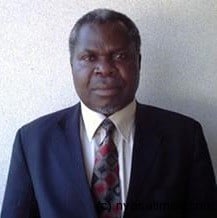 Minister of Education, Fabiano: Business as usual will not take us far[/caption]
The assertion comes to light in the wake of a three day long (17-19 February, 2016) Bridge Africa Conference underway at Capital Hotel in Lilongwe.
Bridge Africa is a programme initiated by the Korean Commission for UNESCO, which comprises of eight African countries with the aim of spreading hope through education in Sub-Saharan Africa.
In his address during the opening of the conference on Wednesday, Malawi’s Education Minister,Dr. Emmanuel Fabiano appreciated the conference whose theme is “Sharing experiences; Paving the way forward” describing it as timely and has come at the stock-taking time of shortfalls encountered in attempting Education for All (EFA), and strategising Sustainable Development Goals (SDGs).
Said Fabiano; “SDG number four challenges the world community to ensure inclusive and equitable quality education and promote lifelong learning opportunities for all and this comes in against a backdrop of a mixed performance in attainment of EFA goals which ended in 2015.
“One lesson learnt in implementing EFA goals is that ‘business as usual’ will not take us far and we can only sustain the outcome of our efforts if our approach to the efforts is sustainable.”
He further expressed optimism that attainment of SDGs is possible if “we can move at a faster pace than EFA goals”.
He has since challenged the country delegates partaking in the conference to also tackle issues of communities’ and parents’ roles in ensuring children’s attainment of quality education.
Also present at the opening was Minister Gender, Children, Disability and Social Welfare Patricia Kaliati, who applauded the educational approach by the Bridge Africa Programme saying it is vital to her ministry and Malawi’s development and poverty eradication.
In his remarks Secretary General for the Korean national Commission for UNESCO, Dong-Seok Min challenged that attaining success in development through education is possible sighting his country as an example.
He said; “if Korea made it, why can’t Malawi and other countries make it”?
Among the countries under the Bridge Africa Programme are Malawi, Lesotho, Rwanda, Zambia and Zimbabwe whose representatives were all present at the function.
Minister of Education, Fabiano: Business as usual will not take us far[/caption]
The assertion comes to light in the wake of a three day long (17-19 February, 2016) Bridge Africa Conference underway at Capital Hotel in Lilongwe.
Bridge Africa is a programme initiated by the Korean Commission for UNESCO, which comprises of eight African countries with the aim of spreading hope through education in Sub-Saharan Africa.
In his address during the opening of the conference on Wednesday, Malawi’s Education Minister,Dr. Emmanuel Fabiano appreciated the conference whose theme is “Sharing experiences; Paving the way forward” describing it as timely and has come at the stock-taking time of shortfalls encountered in attempting Education for All (EFA), and strategising Sustainable Development Goals (SDGs).
Said Fabiano; “SDG number four challenges the world community to ensure inclusive and equitable quality education and promote lifelong learning opportunities for all and this comes in against a backdrop of a mixed performance in attainment of EFA goals which ended in 2015.
“One lesson learnt in implementing EFA goals is that ‘business as usual’ will not take us far and we can only sustain the outcome of our efforts if our approach to the efforts is sustainable.”
He further expressed optimism that attainment of SDGs is possible if “we can move at a faster pace than EFA goals”.
He has since challenged the country delegates partaking in the conference to also tackle issues of communities’ and parents’ roles in ensuring children’s attainment of quality education.
Also present at the opening was Minister Gender, Children, Disability and Social Welfare Patricia Kaliati, who applauded the educational approach by the Bridge Africa Programme saying it is vital to her ministry and Malawi’s development and poverty eradication.
In his remarks Secretary General for the Korean national Commission for UNESCO, Dong-Seok Min challenged that attaining success in development through education is possible sighting his country as an example.
He said; “if Korea made it, why can’t Malawi and other countries make it”?
Among the countries under the Bridge Africa Programme are Malawi, Lesotho, Rwanda, Zambia and Zimbabwe whose representatives were all present at the function.

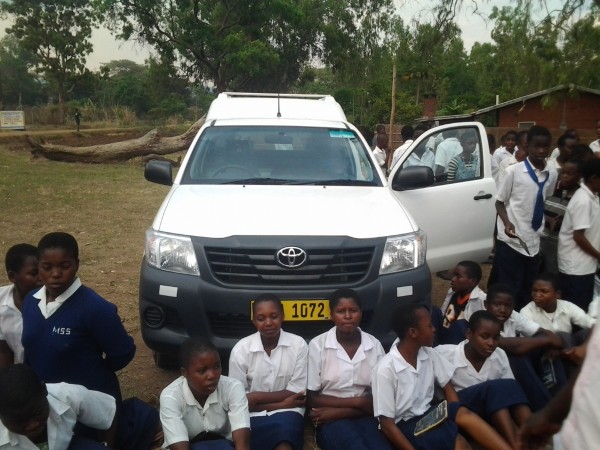 Malosa students[/caption]
To the contrary Malosa Secondary School announced that fees were hiked from K65000 to K80000. This is K5000 above the government proposed hike.
I feel with K80 000 it means we are subjected to private institutions’ conditions. K15000 per academic year is enough to buy grocers for our children or pay fees for another child at a CDSS. Unfortunately, we did not send our children to a private secondary school nor did government seek consent to select our pupils to an expensive institution.
Later government suspended fee hike due to economic standing. To my disappointment Malosa has maintained the K80000 fee hike as though we have our own economy.
As a concerned parent and Malawian, I would like to implore government and all stakeholders to consider this as discriminatory, fraudulent and unfair.
Our children were selected to various government aided secondary schools based on contract or memorandum of understanding between government and church administrators as one unit. Therefore it is important that all secondary schools which are party to the agreement must have same school fees as determined by government from time to time.
Besides, maintaining high fees when government has suspended the same is totally unacceptable unless government is playing double standards on the matter. Has Malosa turned into a private secondary school? And if yes why has government not relocated our children to other schools?
We are also affected by the economic crisis. This is discrimination at its best. Students selected on same conditions but are being treated differently.
If you visit Malosa today you will be shocked to see students living without soap and other school needs. Their parents cannot manage to buy for them. And if a choice was given we could not tick it because it is above our income.
As a church it is sad that it has chosen that path. I hope it has an obligation to help the poor. For income generation purposes churches build pure private schools.
Since the issue began in parliament and government agreed to it I feel it is necessary that it also goes to the same institutions for clarification and consideration.
Could they please let the nation know:
(i) If cancellation of the fee hike did not affect government aided secondary schools
(ii) Why, if yes to (i) above
(iii) If it is fair that schools should be charging fees above government recommendation
(iv) If yes, is it necessary for government to select high performing pupils to private secondary schools without consent of guardians and parents?
(v) How shall our rights to fair fee contribution be protected?
Finally, I would like to emphasize that my views represent many people who are affected by the same problem in all government aided secondary schools.
We are equally affected by the economic crisis and as such we also need to be saved.
Concerned parent
Malosa students[/caption]
To the contrary Malosa Secondary School announced that fees were hiked from K65000 to K80000. This is K5000 above the government proposed hike.
I feel with K80 000 it means we are subjected to private institutions’ conditions. K15000 per academic year is enough to buy grocers for our children or pay fees for another child at a CDSS. Unfortunately, we did not send our children to a private secondary school nor did government seek consent to select our pupils to an expensive institution.
Later government suspended fee hike due to economic standing. To my disappointment Malosa has maintained the K80000 fee hike as though we have our own economy.
As a concerned parent and Malawian, I would like to implore government and all stakeholders to consider this as discriminatory, fraudulent and unfair.
Our children were selected to various government aided secondary schools based on contract or memorandum of understanding between government and church administrators as one unit. Therefore it is important that all secondary schools which are party to the agreement must have same school fees as determined by government from time to time.
Besides, maintaining high fees when government has suspended the same is totally unacceptable unless government is playing double standards on the matter. Has Malosa turned into a private secondary school? And if yes why has government not relocated our children to other schools?
We are also affected by the economic crisis. This is discrimination at its best. Students selected on same conditions but are being treated differently.
If you visit Malosa today you will be shocked to see students living without soap and other school needs. Their parents cannot manage to buy for them. And if a choice was given we could not tick it because it is above our income.
As a church it is sad that it has chosen that path. I hope it has an obligation to help the poor. For income generation purposes churches build pure private schools.
Since the issue began in parliament and government agreed to it I feel it is necessary that it also goes to the same institutions for clarification and consideration.
Could they please let the nation know:
(i) If cancellation of the fee hike did not affect government aided secondary schools
(ii) Why, if yes to (i) above
(iii) If it is fair that schools should be charging fees above government recommendation
(iv) If yes, is it necessary for government to select high performing pupils to private secondary schools without consent of guardians and parents?
(v) How shall our rights to fair fee contribution be protected?
Finally, I would like to emphasize that my views represent many people who are affected by the same problem in all government aided secondary schools.
We are equally affected by the economic crisis and as such we also need to be saved.
Concerned parent

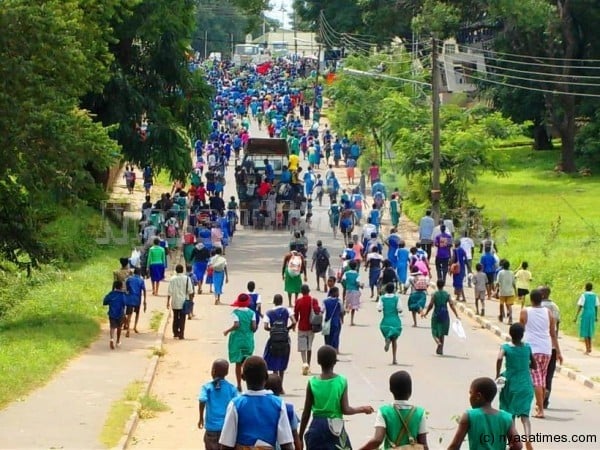 Pupils take to the streets[/caption]
A few months ago, the school asked each learner to contribute K300 each to buy the maize and soya for porridge.
However some of the learners said they were surprised that for two months now, there has been no porridge.
They were surprised this week when they saw the school committee grabbing a bag of maize each. This irked the learners who matched to the district education manager's office to present their grievances.
Alex Kamwendo, human resources manager in the office of the district education's manager assured the learners that the office would probe the matter and feedback would be given to them.
A teacher who asked for anonymity said the school committee members earmarked to share 33 bags of maize.
Both the headteacher and school committee chairman were not available for comment but the situation is not different from most schools across the country where school committee members embezzle openly money learners are forced to pay for development projects.
In urban areas including Lilongwe, school committee members spend all working hours in headmasters offices, collecting money which range from K500 to K1000.
In most cases, there is no transparency and accountability on the use of the money. Learners who fail to pay the school funds are sent back home.
Primary education in Malawi is free.
Pupils take to the streets[/caption]
A few months ago, the school asked each learner to contribute K300 each to buy the maize and soya for porridge.
However some of the learners said they were surprised that for two months now, there has been no porridge.
They were surprised this week when they saw the school committee grabbing a bag of maize each. This irked the learners who matched to the district education manager's office to present their grievances.
Alex Kamwendo, human resources manager in the office of the district education's manager assured the learners that the office would probe the matter and feedback would be given to them.
A teacher who asked for anonymity said the school committee members earmarked to share 33 bags of maize.
Both the headteacher and school committee chairman were not available for comment but the situation is not different from most schools across the country where school committee members embezzle openly money learners are forced to pay for development projects.
In urban areas including Lilongwe, school committee members spend all working hours in headmasters offices, collecting money which range from K500 to K1000.
In most cases, there is no transparency and accountability on the use of the money. Learners who fail to pay the school funds are sent back home.
Primary education in Malawi is free.
